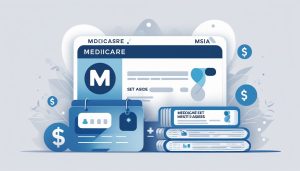Navigating the complexities of caregiver support services under Medicare can be challenging. Medicare does provide some coverage for caregiver services, primarily when they are deemed medically necessary by a healthcare professional. This often applies to situations involving recovery after hospital stays or specific health conditions that require assistance at home.
Understanding the specifics of what is covered can make a significant difference in how you approach caregiving for a loved one. The Modern Medicare Agency offers personalized guidance to help you explore available options tailored to your unique situation. Our licensed agents are real people you can speak to 1 on 1, ensuring you find Medicare packages that align with your needs without incurring unexpected costs.
You deserve clear and accessible information about Medicare and its offerings. By choosing The Modern Medicare Agency, you gain the assurance and expertise needed to make informed decisions regarding caregiver support services and overall Medicare coverage.
Understanding Medicare’s Role in Caregiver Support Services
Medicare plays a limited role in supporting caregivers, primarily covering services that enhance the care provided to beneficiaries. While direct reimbursement for caregiver services is rare, certain provisions exist that may aid both you and your loved ones in caregiving situations.
What Caregiver Support Services Means Under Medicare
Under Medicare, caregiver support services generally refer to indirect support that enhances the overall care experience. While Medicare does not directly pay for hiring caregivers, it covers medically necessary services that may indirectly benefit caregivers. These include in-home health care, skilled nursing, and rehabilitation services. For instance, Medicare Part A may cover temporary home health services alongside medical treatments, allowing family caregivers to focus on more pressing duties.
Eligibility Requirements for Caregiver Support Coverage
To access Medicare coverage related to caregiver support, you must meet specific eligibility criteria. Firstly, you need to be enrolled in Medicare Parts A or B. Your loved one should have a qualifying condition that necessitates skilled care. This may include serious illnesses like cancer, Alzheimer’s, or other chronic conditions. Additionally, the services must be deemed reasonable and necessary for the treatment of the patient’s specific health issue, ensuring that the coverage aligns with Medicare’s policies.
Distinguishing Between Medical and Non-Medical Caregiving
Understanding the distinction between medical and non-medical caregiving is crucial. Medical caregiving includes skilled nursing, physical therapy, and in-home health services covered by Medicare. Non-medical caregiving, such as companionship or personal care, is typically not covered. This means that while Medicare can assist in certain scenarios, family members often need to manage non-medical support independently. It’s essential to evaluate the caregiving needs of your loved ones and explore additional resources.
For tailored support, consider working with The Modern Medicare Agency. Our licensed agents will help you find Medicare packages suited to your needs without hidden fees. You can rely on personalized assistance to guide you through your Medicare options effectively.
How Medicare Parts A and B Cover Caregiver-Related Services
Understanding how Medicare Parts A and B support caregiver-related services is crucial for accessing necessary care. These parts provide coverage for a range of services, including hospital care, skilled nursing, and outpatient therapies.
Hospital Insurance (Part A): Coverage of Hospital and Skilled Nursing Care
Medicare Part A covers hospital and skilled nursing care essential for recovery. If you require inpatient treatment, it pays for your hospital stay after you meet the deductible.
For skilled nursing care, coverage begins if you have received a qualifying hospital stay of at least three days. It includes services such as skilled nursing care, rehabilitation, and certain therapies.
Keep in mind that long-term care, such as custodial care, is not covered under Medicare Part A.
Medical Insurance (Part B): Outpatient and Therapy Services
Medicare Part B offers coverage for outpatient services that are vital for ongoing care. This includes visits to doctors and certain therapies such as physical therapy, occupational therapy, and speech-language pathology services.
As part of your care plan, consult your doctor, who must determine the medical necessity of these services. Coverage under Part B usually involves a standard premium and cost-sharing for services received.
Medical social services may also be covered, assisting with the emotional and social impacts of illness or caregiving, further supporting you and your caregiver.
Home Health Services Criteria and Limitations
Home health services may be covered under Medicare when medically necessary. To qualify, you must be considered homebound and require skilled care.
Services covered include intermittent skilled nursing care, home health aide services, and therapy if ordered by a doctor. However, coverage is typically limited to short-term care.
It’s important to note that not all home health services are covered, such as 24-hour care or custodial care, so be sure to confirm eligibility.
Choosing the right Medicare coverage can be complex. The Modern Medicare Agency simplifies this process. Our licensed agents can help you find plans tailored to your needs without unwanted fees.
Medicare Advantage and Expanded Benefits for Caregiver Support
Medicare Advantage plans, also known as Part C, provide a range of benefits that extend beyond traditional Medicare, including support for caregivers. Understanding these options can help you navigate the benefits available, particularly in-home care and supplemental services.
Overview of Medicare Advantage Plans (Part C)
Medicare Advantage plans are offered by private insurers and cover the benefits of Original Medicare (Parts A and B) along with additional services. These plans often include prescription drug coverage, making them a comprehensive option for many.
Enrollment in these plans provides access to a network of healthcare providers. Depending on the plan, you may have additional support for caregivers, which can be crucial for managing the care of loved ones. It’s essential to review different plans to find one that meets your specific needs.
Caregiver Support and In-Home Care Options
Many Medicare Advantage plans now offer specific caregiver support services, including in-home care options like home health aides. These aides assist with daily activities, ensuring that patients receive the care they need at home.
Eligibility for these services can vary by plan. Generally, home health aides are available to those who meet certain health requirements and need assistance with activities of daily living. Understanding the qualifications for these services can help you make informed decisions regarding care.
Supplemental Benefits and Plan Flexibility
Medicare Advantage plans frequently include supplemental benefits that enhance caregiver support. Many plans now offer services like respite care, which gives family caregivers a break, allowing them to recharge while ensuring their loved ones are still cared for.
The flexibility of these plans means that you can tailor your coverage to fit your needs. For instance, some plans allow you to select options that include transportation to medical appointments or additional preventive services. Choosing the right plan can significantly impact your caregiving experience.
For assistance in finding Medicare packages that align with your needs, consider reaching out to The Modern Medicare Agency. Our licensed agents are real people you can speak to one-on-one, ensuring you receive personalized support without hidden fees.
What Medicare Does Not Cover for Caregivers
Understanding the limitations of Medicare coverage for caregivers is crucial for planning effective care. Specific exclusions apply to various types of caregiving services, which can affect both caregivers and recipients.
Personal Care and Non-Skilled Services Limitations
Medicare does not cover personal care services that do not necessitate skilled medical assistance. This includes essential tasks like bathing, grooming, and meal preparation when performed by caregivers who lack medical training. Non-skilled caregiving services are often vital for daily living but fall outside Medicare’s guidelines.
For instance, if a caregiver is helping with dressing or personal hygiene and no skilled nursing is involved, Medicare will not cover those costs. This limitation often leaves families to bear the financial burden of hiring non-medical caregivers.
Long-Term Care and Assisted Living Exclusions
Long-term care services, including assisted living facilities, are not covered by Medicare. The program is designed primarily for short-term rehabilitation or specific medical needs. If you require assistance in a residential facility for an extended period, you will need to explore other financing options.
Many seniors might find themselves facing high out-of-pocket costs for long-term care. These can include room and board, personal care services, and activities that support daily living. Therefore, planning ahead and investigating alternative coverage is essential.
Paying Family Caregivers: Restrictions and Alternatives
Medicare also does not provide payment for family members who serve as caregivers. While many families choose to help loved ones with daily tasks, this care doesn’t receive any financial support from Medicare. Resources like Medicaid or state assistance programs may offer alternatives, but you must meet specific criteria to qualify.
In practice, this means that many families shoulder the cost of caregiving without any reimbursement from Medicare. You may need to consider local resources or inquire about programs that support family caregivers.
Navigating these limitations can be challenging. The Modern Medicare Agency offers personalized support to help you understand your options. Licensed agents can assist you in identifying Medicare packages tailored to your needs, ensuring that you receive the most suitable coverage without excessive costs.
Alternative Options for Caregiver Support Services
Exploring alternative options for caregiver support services can provide valuable assistance beyond Medicare coverage. Various programs and financial resources are available, helping you manage caregiving responsibilities more effectively.
How Medicaid and State Programs May Help
Medicaid offers significant support for caregiver services, especially for those who meet income and asset requirements. Many states have Medicaid programs that cover personal care services, which can include assistance with daily activities like bathing and medication management.
Additionally, some states offer Home and Community-Based Services (HCBS) waivers. These waivers allow you to receive care at home or in the community rather than in a nursing facility. This flexibility can ease the financial burden of caregiving.
For those eligible for both Medicare and Medicaid, known as dual-eligible individuals, specific programs can further enhance your benefits. These programs aim to integrate services and improve access to necessary care.
Other Financial Assistance and Support Resources
In addition to Medicaid, several financial assistance programs can help caregivers. Medicare Savings Programs offer assistance with out-of-pocket costs, such as premiums and deductibles, making healthcare more affordable for you.
You may also consider Long-Term Care Insurance, which can cover caregiver services, providing flexibility in care choices. Many community organizations exist as well, offering resources or financial aid specifically for caregivers. These local services can bridge the gap when additional support is needed.
To navigate these options, connect with The Modern Medicare Agency. Our licensed agents provide personalized assistance to help you choose the best Medicare packages that meet your needs without unforeseen costs.
Managing Costs and Making the Most of Medicare Benefits
Managing costs as a caregiver is crucial for ensuring that both you and those you care for receive the best possible support. Understanding out-of-pocket expenses, navigating Medicare coverage, and utilizing effective resources can help you maximize your benefits.
Understanding Out-of-Pocket Expenses
When managing care under Medicare, it’s important to be aware of various out-of-pocket expenses. These can include premiums, deductibles, and co-pays.
- Premiums: The monthly fee for coverage varies by plan.
- Deductibles: This is the amount you must pay before Medicare begins to cover services.
- Co-pays: A fixed amount paid for specific services, such as outpatient visits.
For caregivers using Medicare Part D, which covers prescription drug costs, it’s essential to review your plan’s specific medications and any associated costs. Medication management is key; ensure all necessary prescriptions are covered to prevent unexpected costs.
Tips for Navigating Medicare Coverage
You can make the most of your Medicare benefits by staying informed and proactive. Familiarize yourself with your plan’s coverage details to avoid surprises.
- Use preventive services: Many preventive services, like annual wellness visits, are covered at no cost.
- Review your options annually: Every year, plans may change. Comparing options through the Medicare Annual Enrollment Period can save you money.
- Seek support: Don’t hesitate to reach out for help. Licensed agents at The Modern Medicare Agency can tailor a plan that suits your needs without hidden fees.
Understanding the complexities of Medicare coverage helps you ensure that necessary services are covered.
Resources and Strategies for Caregivers
Effective resources and strategies can greatly ease the financial burden of caregiving.
- Home health aides: If caregiving becomes overwhelming, Medicare may cover home health aides under certain conditions. Review eligibility requirements carefully.
- Informational resources: Websites like the Medicare.gov provide comprehensive guides on eligibility and coverage options.
- Community programs: Local organizations often have support resources that can help with caregiving costs.
Working with a licensed agent from The Modern Medicare Agency ensures personalized assistance in navigating these topics. They can provide insights into available programs for caregivers, maximizing your Medicare benefits.
Frequently Asked Questions
Understanding Medicare’s coverage for caregiver support services can be complex. Below are key questions that provide clarity on what services are available, eligibility criteria, and specific details regarding coverage.
What home health services does Medicare actually cover?
Medicare typically covers skilled nursing care, physical therapy, and occupational therapy as part of home health services. These services require a doctor’s order and must be deemed medically necessary. Personal care services that do not involve skilled assistance are generally not covered.
Can you explain who is eligible for Medicare-covered home health care?
To be eligible for Medicare-covered home health care, you must be enrolled in Medicare Part A and/or Part B. You also need to be under the care of a doctor who certifies that you require home health services. Additionally, you must be homebound and unable to safely leave your home without assistance.
Does Medicare provide any coverage for in-home caregivers, and if so, to what extent?
Medicare does cover in-home caregiver services, but only when skilled nursing or therapy services are also provided. It does not typically cover long-term personal care or companionship services that many families may seek from caregivers.
Under Medicare rules, who is recognized as an eligible caregiver?
Eligible caregivers under Medicare rules include home health aides who provide personal care services alongside skilled nursing care. Family members providing care are generally not recognized as eligible caregivers under Medicare coverage.
What is the duration of home health care services Medicare will pay for?
Medicare’s coverage for home health care services does not have a strict time limit, but it is contingent on continued medical necessity. Your physician will need to regularly assess your condition to confirm the ongoing need for home health services.
Are home health care services covered under Medicare Part A, Part B, or another part?
Home health care services are primarily covered under Medicare Part A when associated with inpatient hospital services. They can also be covered under Medicare Part B if you are receiving outpatient care. It is essential to verify your specific plan details for comprehensive coverage information.
For personalized guidance on Medicare options, consider reaching out to The Modern Medicare Agency. Our licensed agents provide one-on-one support to help you identify Medicare packages tailored to your needs without additional fees.






